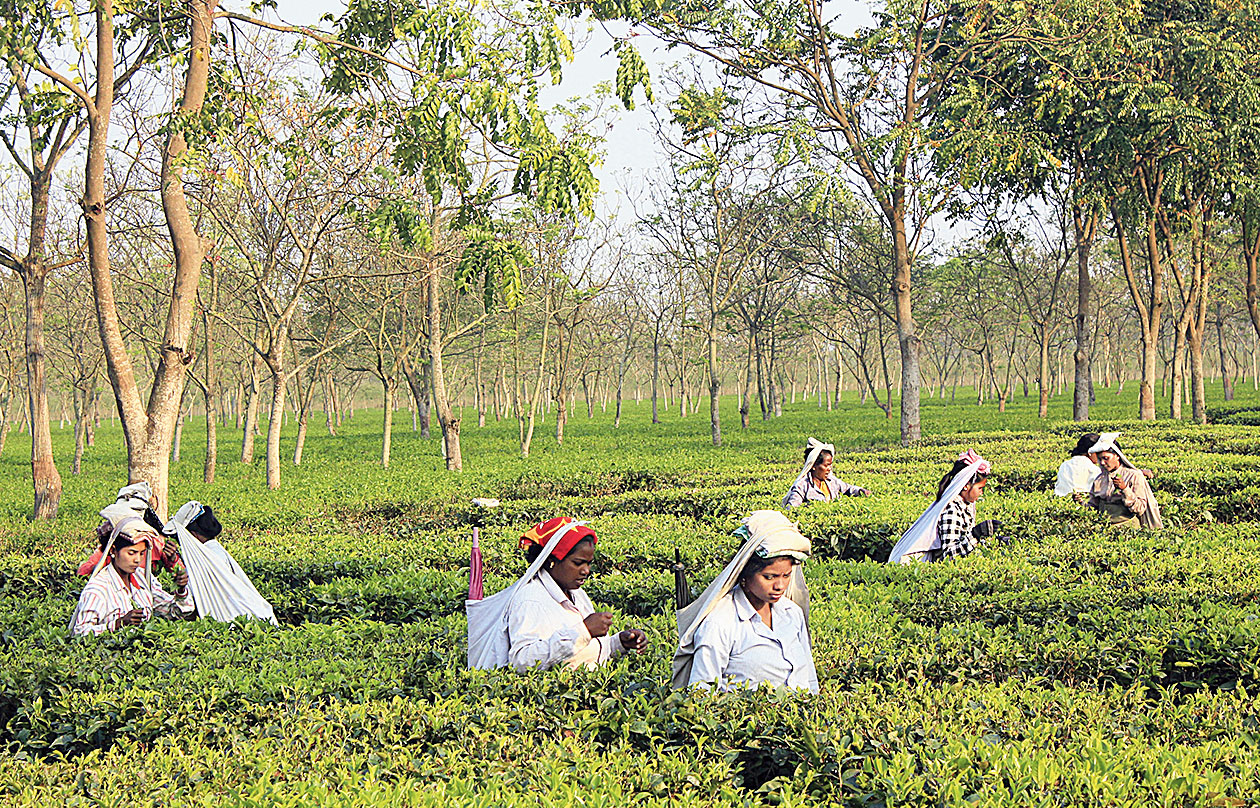The Union budget proposal to levy a 2 per cent tax at source if annual cash withdrawals exceed Rs 1 crore has come as a blow to north Bengal’s ailing tea industry as most gardens disburse wages in cash.
Tea industry estimates suggest that of the 3.25 lakh workers employed in 276 tea gardens in the state, around 90 per cent are still paid their weekly or fortnightly wages in cash.
Tea industry insiders fear Nirmala Sitharaman’s budget proposal would compound their problems at a time they are grappling with spiralling costs, stagnancy in tea prices and shortage of labour supply.
“The government should give a special exemption to us,” said a tea industry insider.
Sources said the Tea Association of India, the apex body of tea planters in the country, was toying with the idea of sending a representation to the finance minister, urging her to consider their case.
“Several tea estates have a huge workforce and their annual expenditure on account of wages is much higher than Rs 1 crore. These gardens will have to bear this TDS, which means additional expenditure that will add to the production costs,” said Prabir Bhattacharjee, secretary-general of the Tea Association of India.
For instance, if there are 1,200 workers in a tea estate in Bengal, where the daily wage is Rs 176, an annual payment to the workers means a sum of around Rs 7 crore, which means a TDS deduction of around Rs 12 lakh, an additional expenditure for the garden. Then, there are other payments like bonus, which would push the tax bill up even further.
“The state government is working on a minimum wage and once it is fixed, the cash requirement will go up further. It will again push up the outgo on account of this tax,” said Sanjay Bagchi, secretary of the Terai branch of the Indian Tea Association.
In November 2016, when the Centre had demonetised 1,000 and 500-rupee notes and laid stress on digital modes of payment, the disbursal of tea workers’ wages got delayed because of the cash crunch.
Since then, the tea industry has been trying to open bank accounts for their workers.
“But the banking infrastructure is inadequate in the tea belt. There are gardens in areas like the Birpara-Madarihat block of Alipurduar district where the management had to resume wage disbursement in cash as the workers refused to travel around 30-40km to reach the nearest banks,” said a tea planter based in Siliguri.
Industry sources also pointed out that even though some public sector banks have set up ATMs in the recent past, poor telecom connectivity in remote areas — like pockets of Naxalbari block in the Terai — have compelled the workers to demand their wages in cash.
“The tea trade unions want us to pay in cash. How can we refuse their demand?” asked the owner of a tea garden.
The tea industry is also upset with Sitharaman’s first budget for a number of other reasons.
“We have to bear the social costs of workers as per the Plantation Labour Act and our expenditure is on the rise. We have been requesting the government to share a part of this cost. The budget was silent on this issue,” said a planter.
Several tea industry insiders said that after the BJP’s stellar show in Bengal’s tea belt — the party bagged the Darjeeling, Alipurduar and Jalpaiguri Lok Sabha seats — they had been expecting some good news for the industry that is going through a rough patch.
“But there hasn’t been anything for the sector,” rued a planter.
Additional reporting by Anirban Choudhury in Alipurduar











